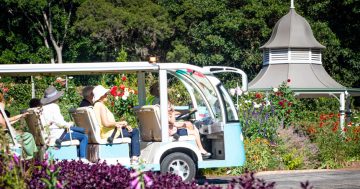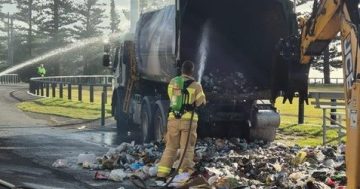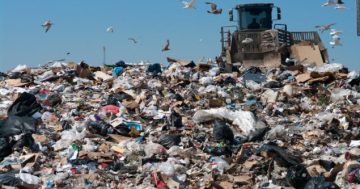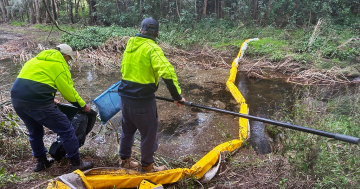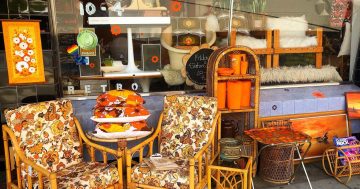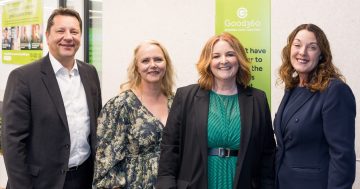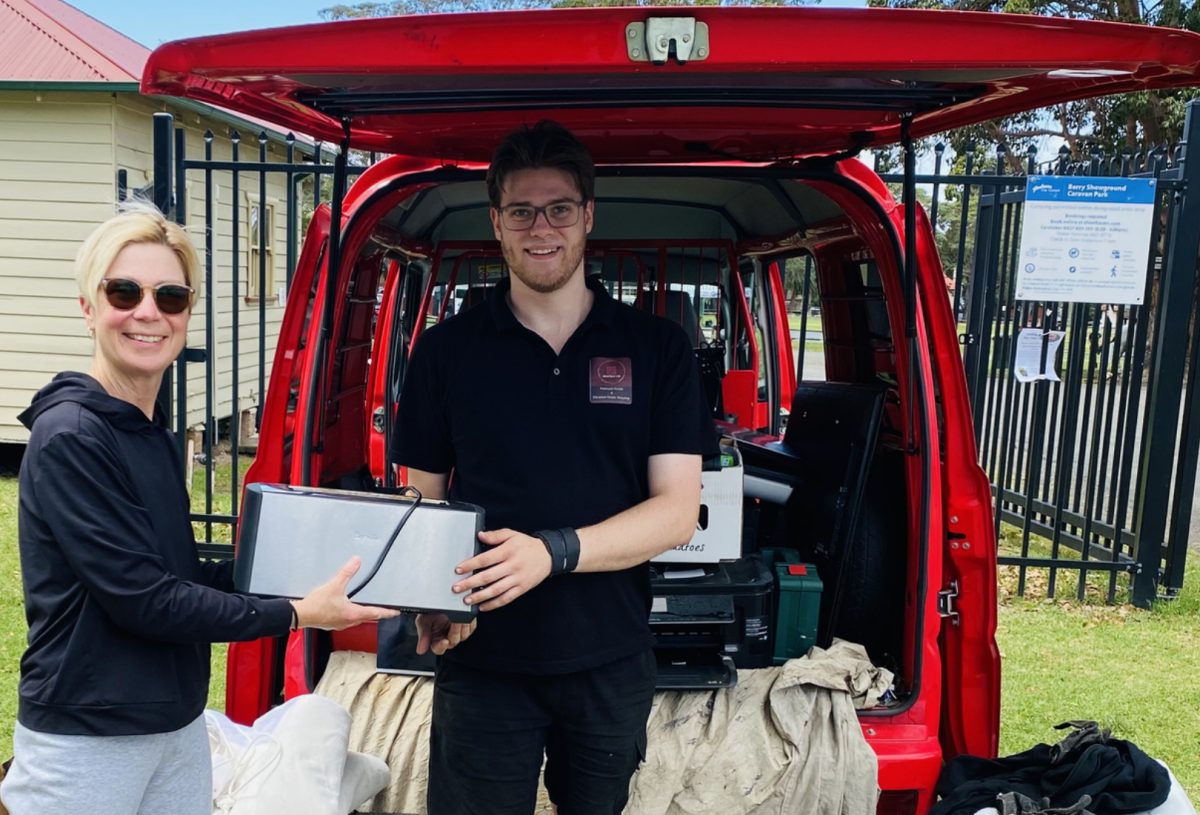
Rekindle Me owner Wade Cawley during one of the recent community collections in Berry. Photo: Supplied.
A passion for restoring vintage electronics has led to Wade Cawley diverting 41 tonnes of e-waste from landfill.
Wade began collecting and restoring old electronics in high school as a hobby and now has a large collection ranging from Commodore 64s to huge mainframes with big tape drives.
However, it wasn’t until a double foot reconstruction 10 years ago that Wade considered making a business out of his passion.
Though the surgery kept him out of a wheelchair, it left him with a lot of residual pain and made it difficult for him to find suitable work.
“I wanted something where I could work on my own terms, but also really enjoy and so with a passion for recycling it kind of made sense,” Wade said.
His mobility disability resulted in him starting the unique e-waste recycling business Rekindle Me three years ago, which has grown dramatically since.
“It started in mum’s garage in Berry and then from there it kept growing,” he said.
“My first year, I recycled 2 tonnes, which is a fair amount.
“Then the second year I did 17 tonnes, and this year I’m well over 22 tonnes, so in total I’ve saved 41 tonnes from landfill.
“It’s only growing now, with more businesses reaching out that want somewhere to not just drop it off at the tip and hope it gets recycled.”
Last year Wade’s mum finally needed her garage back, so he moved to a Port Kembla warehouse to allow him to be closer to the more population-dense Wollongong.
“Globally last year we threw out something like 53 million tonnes and that number is supposed to reach 70 million tonnes by 2030 – that’s the same weight as 350 Queen Mary II cruise liners,” he said.
“Australia produces a couple of hundred thousand tonnes of e-waste a year and our solution was just to send it overseas.”
However, countries like China no longer want to deal with it.
He said Australia had adopted a computer and TV recycling scheme, but anything that fell outside that ended up in landfill.
To combat this, Wade offers a free collection service for businesses and community collection days for the public for electrical items ranging from computers to microwaves and sewing machines.
He said the community events were a way to honour where he started, doing residential collections in Berry.
“To do residential pickups, it’s now uneconomical because I’m so busy doing large businesses,” he said.
“People have the opportunity to drop it off at the warehouse but then I started up these events every second Saturday so people further south can still recycle.
“I usually end up with a full van load which is at least 300 kilos saved from landfill each event.”
The red electric van, a former Japanese postal service van, was imported four years ago.
“It not only is good for the environment, but I’m able to do all these collections for free because there’s no fuel costs, which is really important because people are more inclined to recycle if it’s free,” he said.
Wade also now does workshops at schools and organisations, believing “education is the only way we’re going to actually curb this problem”.
“The kids are so interested in not just the old stuff but what is actually inside those things we use every single day.
“When I get them to hold a gold-plated piece from a computer, they’re like ‘Is there really gold and silver inside of computers?”
He said while gold and silver from circuit boards were previously lost through shredding, a new Sydney e-waste biorefinery was able to recover gold and silver from e-waste by using bacteria.
He said this was just one pathway he used to give old electronics destined for landfill a second chance.
“The best way to recycle something is to reuse it,” he said.
“If it has any chance of being revived, whether it be just in parts like pulling hard drives out of computers, that goes to a really good mate of mine and his whole thing is on-selling stuff.
“Stuff that’s vintage that I don’t want for my collection, like old sewing machines and radios, if it can be reused then it’s on-sold to have a second life.”
Metal goes to the scrap metal yard in Unanderra, glass from screens goes to a glass recycler in Ingleburn, and textiles like speaker grills go to a Nowra company that makes industrial rags.
He said the only thing he struggled with was plastic.
“Even though we can’t recycle the plastic off things, we go through about 700 kilos of recycled material leaving the warehouse each week, that is purely re-homed items or scraps like circuit boards, glass and metal, and on top of that we only produce about 80 kilos of rubbish,” he said.
Wade now has more than 100 vintage computers and radios in his collection, joking that one day he might open a museum.
His next focus is purchasing machinery to eliminate the manual work and replace his makeshift tools.
“It’s so expensive and that’s why a lot of people don’t get into it but if you know what you’re doing there is money to be made in e-waste and it’s a resource we shouldn’t be throwing out.”
For community collection dates, check out Rekindle Me.








